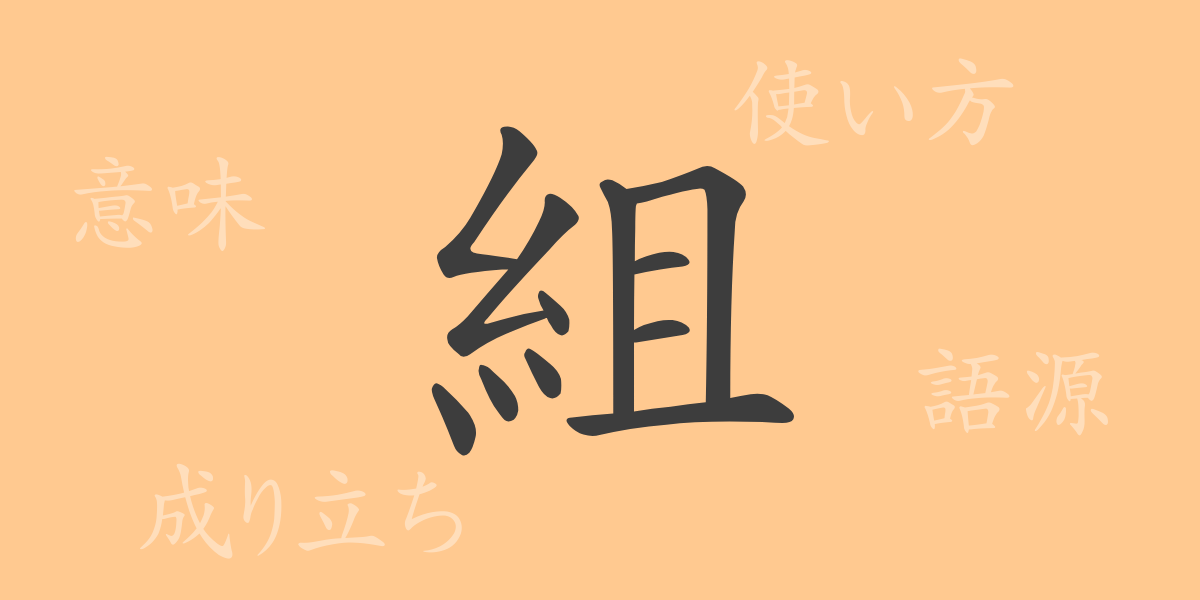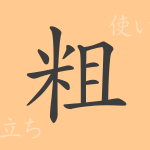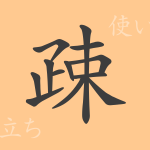In the realm of Japanese written language, Kanji play a crucial role in conveying information succinctly and deepening the understanding of words. Among them, the Kanji “組” (ソ) is widely used in various aspects of our daily lives and society, serving a diverse range of functions. This article provides an in-depth explanation of the origins, meanings, and usages of “組” (ソ), as well as its readings and the idioms and phrases associated with it.
Origins of 組 (ソ)
The Kanji “組” (ソ) evolved from the concept of bundling threads together, originally representing the action of tangling threads to bind objects. This form has transformed to mean the arrangement of people or objects into a certain order or organization, and today, it is used to denote various “combinations” or “organizations.”
Meaning and Usage of 組 (ソ)
“組” (ソ) has multiple meanings. One is ‘to connect things in a certain order,’ and another is ‘a group of people gathered for a common purpose or activity.’ It is also commonly used in Japanese educational settings to refer to a class or group.
Readings, Stroke Count, and Radical of 組 (ソ)
Here are the basic details of the Kanji “組” (ソ):
- Readings: The on’yomi (Sino-Japanese reading) is “ソ” (ソ), and the kun’yomi (native Japanese readings) are “く.む” (クム), “くみ” (クミ).
- Stroke Count: 11 strokes.
- Radical: Thread radical (糸部/イトヘン).
Idioms and Proverbs Using 組 (ソ) and Their Meanings
There are various idioms, phrases, and proverbs that include “組” (ソ), such as:
- 組織 (ソシキ): A systematic group formed for a common purpose.
- 組合 (クミアイ): An association formed by people with common interests.
- 組み立てる (クミタテル): The act of assembling parts or elements according to a specific order or structure.
- 手を組む (テヲクム): To cooperate, or for adversaries to form a cooperative relationship based on temporary alignment of interests.
- 組み込む (クミコム): To integrate another element into a system or plan.
Summary on 組 (ソ)
The Kanji “組” (ソ) has been used throughout history to express concepts closely related to our lives, such as organizing things or people coming together to accomplish something. As a symbol of these activities and an indispensable part of various phrases and expressions, “組

























